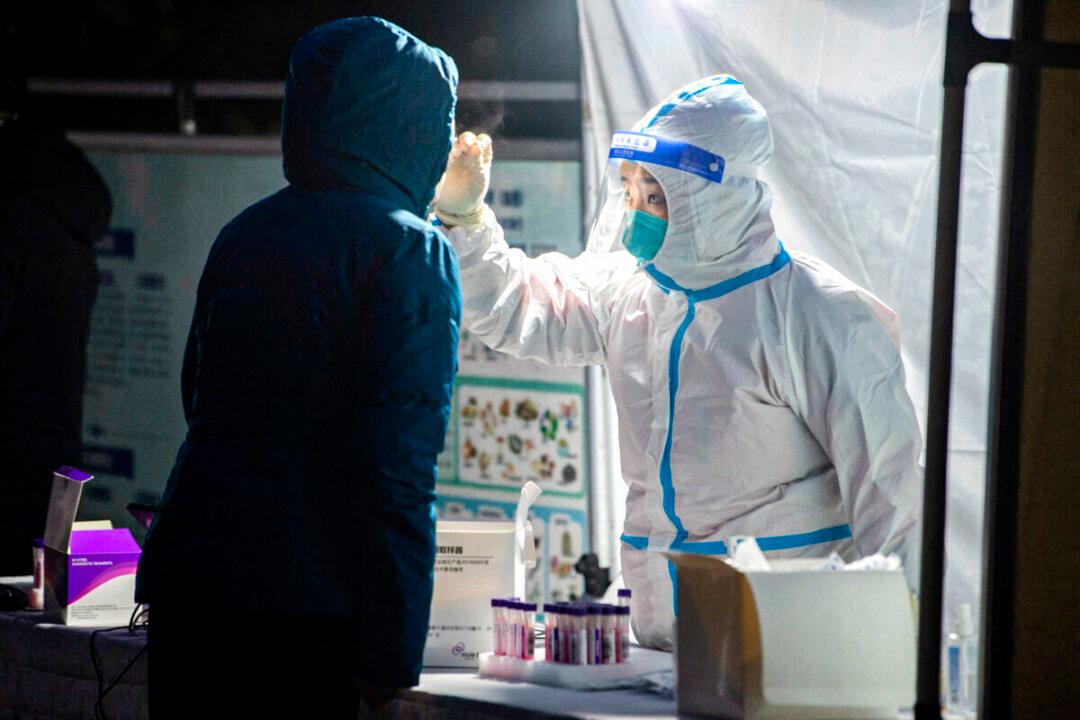The communist regime in China has further tightened travel restrictions in the northwest city of Xi’an since Dec. 27, as it races to contain its largest reported surge in COVID-19 cases in nearly two years.
Xi’an, which is the capital of Shaanxi Province, reported 150 fresh cases on Dec. 27, pushing the total number of those infected to 635 since Dec. 9.




